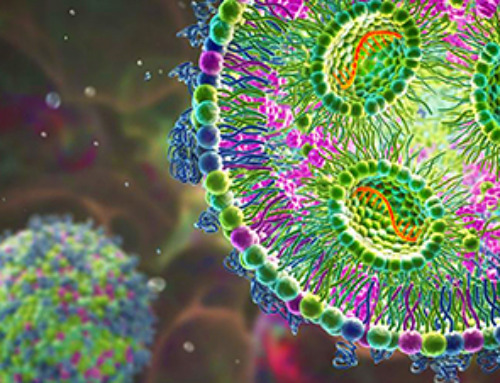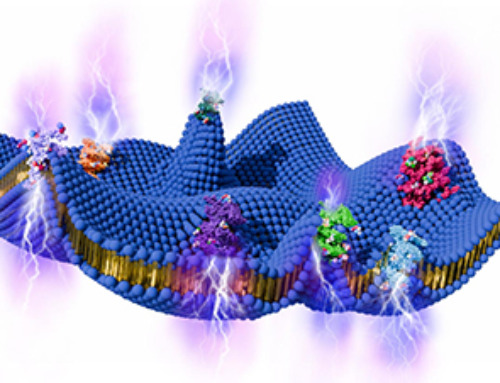Researchers found that natural polymers derived from okra and fenugreek are highly effective at removing microplastics from water.
The same sticky substances that make okra slimy and give fenugreek its gel-like texture could help clean our water in a big way. Scientists have discovered that these natural plant extracts are surprisingly good at trapping microplastics, tiny plastic particles that pollute oceans, rivers, and even our drinking water.
In fact, researchers found that extracts from okra and fenugreek can remove up to 90 percent of microplastics from ocean water, freshwater, and groundwater. These results were recently published in the journal ACS Omega.
Rajani Srinivasan and her research team have been searching for safe, plant-based ways to remove pollutants from water. In earlier lab experiments, they tested extracts from okra, fenugreek, and tamarind. They found that these natural polymers grab onto microplastics, causing them to clump together and sink to the bottom, making it much easier to separate the plastics from the water.
Srinivasan spoke about successful demonstrations of the plant extracts in freshwater and ocean water at ACS Spring 2022, a meeting of the American Chemical Society. In this next stage of the research, they have optimized the process for okra and fenugreek extracts in various types of water.
To extract the sticky plant polymers, the team soaked sliced okra pods and blended fenugreek seeds in separate containers of water overnight. Then, researchers removed the dissolved extracts from each solution and dried them into powders. Analyses showed that the powdered extracts contained polysaccharides, which are natural polymers.
Lab Tests Show High Efficiency of Natural Powders
Initial tests in pure water spiked with microplastics showed that:
- One gram of either powder in a quart (one liter) of water trapped microplastics the most effectively.
- Dried okra and fenugreek extracts removed 67% and 93%, respectively, of the plastic in an hour.
- A mixture of equal parts okra and fenugreek powder reached maximum removal efficiency (70%) within 30 minutes.
- The natural polymers performed significantly better than the synthetic, commercially available polyacrylamide polymer used in wastewater treatment.
Then the researchers tested the plant extracts on real microplastic-polluted water. They collected samples from waterbodies around Texas and brought them to the lab. The plant extract removal efficiency changed depending on the original water source: Okra worked best in ocean water (80%), fenugreek in groundwater (80-90%), and the 1:1 combination of okra and fenugreek in freshwater (77%). The researchers hypothesize that the natural polymers had different efficiencies because each water sample had different types, sizes, and shapes of microplastics.
Polyacrylamide is currently used to remove contaminants during wastewater treatment, but the researchers say that okra and fenugreek extracts could serve as biodegradable and nontoxic alternatives.
“Utilizing these plant-based extracts in water treatment will remove microplastics and other pollutants without introducing additional toxic substances to the treated water,” says Srinivasan, “thus reducing long-term health risks to the population.”
Reference: “Fenugreek and Okra Polymers as Treatment Agents for the Removal of Microplastics from Water Sources” by Rajani Srinivasan, Rajita Bhuju, Victoria Chraibi, Mihaela C. Stefan, Nguyen Hien, Damla Ustundag, Jeri La Neice Gill, Nikolas Rasmussen, Blake Saurenmann, Joe Bracerra, Michael Fowler, Hailey White and Marconi Azadah, 10 April 2025, ACS Omega.
DOI: 10.1021/acsomega.4c07476
The authors acknowledge funding from the U.S. Department of Energy; Tarleton State University; High Plains Water District located in Lubbock, Texas; the Burnaby Munson Endowed Research Professorship; the National Science Foundation Research Experiences for Undergraduates program; and the Welch Foundation.
News
Nanomedicine in 2026: Experts Predict the Year Ahead
Progress in nanomedicine is almost as fast as the science is small. Over the last year, we've seen an abundance of headlines covering medical R&D at the nanoscale: polymer-coated nanoparticles targeting ovarian cancer, Albumin recruiting nanoparticles for [...]
Lipid nanoparticles could unlock access for millions of autoimmune patients
Capstan Therapeutics scientists demonstrate that lipid nanoparticles can engineer CAR T cells within the body without laboratory cell manufacturing and ex vivo expansion. The method using targeted lipid nanoparticles (tLNPs) is designed to deliver [...]
The Brain’s Strange Way of Computing Could Explain Consciousness
Consciousness may emerge not from code, but from the way living brains physically compute. Discussions about consciousness often stall between two deeply rooted viewpoints. One is computational functionalism, which holds that cognition can be [...]
First breathing ‘lung-on-chip’ developed using genetically identical cells
Researchers at the Francis Crick Institute and AlveoliX have developed the first human lung-on-chip model using stem cells taken from only one person. These chips simulate breathing motions and lung disease in an individual, [...]
Cell Membranes May Act Like Tiny Power Generators
Living cells may generate electricity through the natural motion of their membranes. These fast electrical signals could play a role in how cells communicate and sense their surroundings. Scientists have proposed a new theoretical [...]
This Viral RNA Structure Could Lead to a Universal Antiviral Drug
Researchers identify a shared RNA-protein interaction that could lead to broad-spectrum antiviral treatments for enteroviruses. A new study from the University of Maryland, Baltimore County (UMBC), published in Nature Communications, explains how enteroviruses begin reproducing [...]
New study suggests a way to rejuvenate the immune system
Stimulating the liver to produce some of the signals of the thymus can reverse age-related declines in T-cell populations and enhance response to vaccination. As people age, their immune system function declines. T cell [...]
Nerve Damage Can Disrupt Immunity Across the Entire Body
A single nerve injury can quietly reshape the immune system across the entire body. Preclinical research from McGill University suggests that nerve injuries may lead to long-lasting changes in the immune system, and these [...]
Fake Science Is Growing Faster Than Legitimate Research, New Study Warns
New research reveals organized networks linking paper mills, intermediaries, and compromised academic journals Organized scientific fraud is becoming increasingly common, ranging from fabricated research to the buying and selling of authorship and citations, according [...]
Scientists Unlock a New Way to Hear the Brain’s Hidden Language
Scientists can finally hear the brain’s quietest messages—unlocking the hidden code behind how neurons think, decide, and remember. Scientists have created a new protein that can capture the incoming chemical signals received by brain [...]
Does being infected or vaccinated first influence COVID-19 immunity?
A new study analyzing the immune response to COVID-19 in a Catalan cohort of health workers sheds light on an important question: does it matter whether a person was first infected or first vaccinated? [...]
We May Never Know if AI Is Conscious, Says Cambridge Philosopher
As claims about conscious AI grow louder, a Cambridge philosopher argues that we lack the evidence to know whether machines can truly be conscious, let alone morally significant. A philosopher at the University of [...]
AI Helped Scientists Stop a Virus With One Tiny Change
Using AI, researchers identified one tiny molecular interaction that viruses need to infect cells. Disrupting it stopped the virus before infection could begin. Washington State University scientists have uncovered a method to interfere with a key [...]
Deadly Hospital Fungus May Finally Have a Weakness
A deadly, drug-resistant hospital fungus may finally have a weakness—and scientists think they’ve found it. Researchers have identified a genetic process that could open the door to new treatments for a dangerous fungal infection [...]
Fever-Proof Bird Flu Variant Could Fuel the Next Pandemic
Bird flu viruses present a significant risk to humans because they can continue replicating at temperatures higher than a typical fever. Fever is one of the body’s main tools for slowing or stopping viral [...]
What could the future of nanoscience look like?
Society has a lot to thank for nanoscience. From improved health monitoring to reducing the size of electronics, scientists’ ability to delve deeper and better understand chemistry at the nanoscale has opened up numerous [...]





















